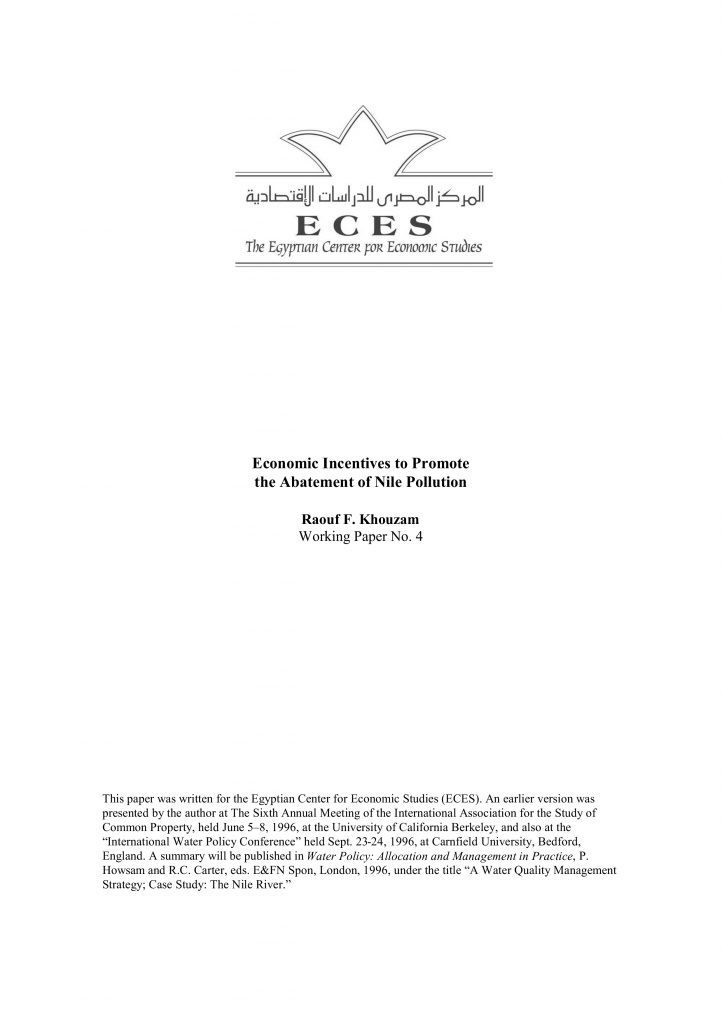Abstract:
Reusing returning water provides Egypt with a solution to the detrimental effect of water shortage on its economic development. However, the degraded quality of returning water creates a serious environmental hazard which subsequently limits its reuse. Several legislative and institutional measures have been taken to enhance the quality of returning water and conserve the environment. These measures have not resulted in a clean Nile, because they focused on technical requirements and imposing sanctions on offenders, with little or no regard for firms’ need to be competitive in local and international markets, nor to the distribution of the cost burden. This brought a negative attitude from firms towards the adoption of the environmental measures.
This research introduces positive economic incentives to deal with the shortfalls of the current policy to reduce pollution caused by municipal, agricultural and industrial activities. The recommendations rely on motivating firms to voluntarily adopt the proposed modifications, while leaving the responsibility of policy execution and information dissemination to the government. Water quality would be improved by eliminating or reducing polluting inputs and processes in agricultural and industrial production techniques, and by finding economic uses for emitted pollutants.

